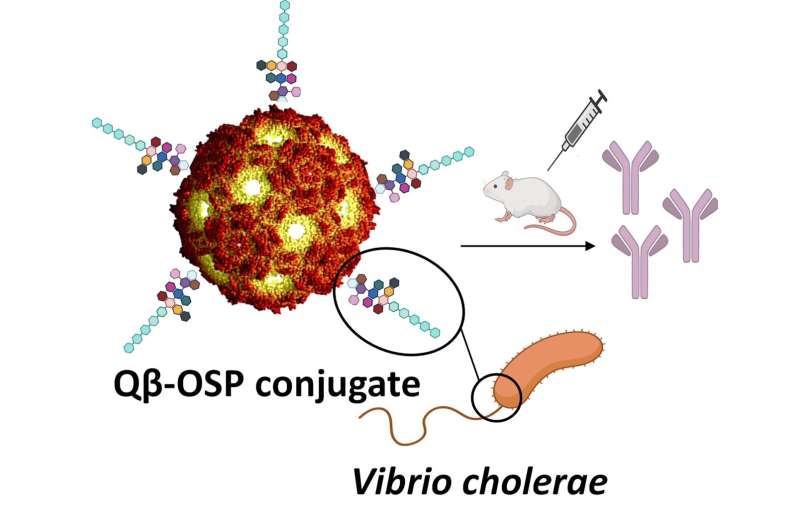A potentially longer-lasting cholera vaccine


Cholera, a diarrheal disease caused by the highly transmissible bacteria Vibrio cholerae, kills tens of thousands of people each year worldwide. Current vaccines last only 2–5 years, and they don’t work very well in young children. Now, researchers reporting in ACS Infectious Diseases have developed a new type of cholera vaccine consisting of polysaccharides displayed on virus-like particles. The vaccine generated long-lasting antibody responses against V. cholerae in mice.
Current cholera vaccines contain killed or weakened V. cholerae bacteria and are administered orally. They offer the lowest level and duration of protection in young children, who are commonly affected by cholera in endemic countries. The immune system produces antibodies against the O-specific polysaccharide (OSP) on the surface of V. cholerae, but this polysaccharide in isolation does not generate a strong, long-lasting immune response. Peng Xu, Edward Ryan, Xuefei Huang and colleagues wondered if attaching OSP to virus-like particles could induce stronger, longer-lasting immunity.
Source: Read Full Article